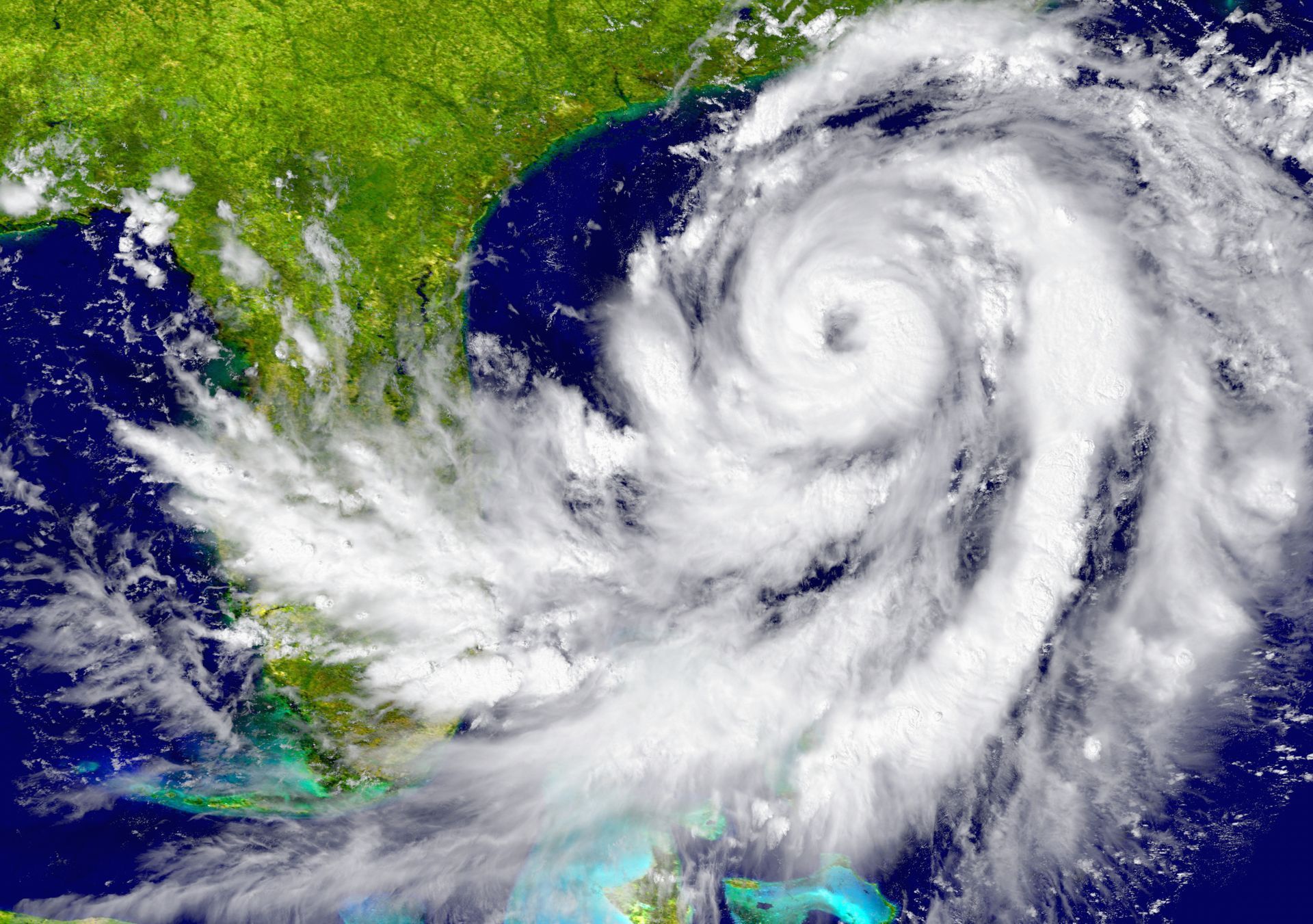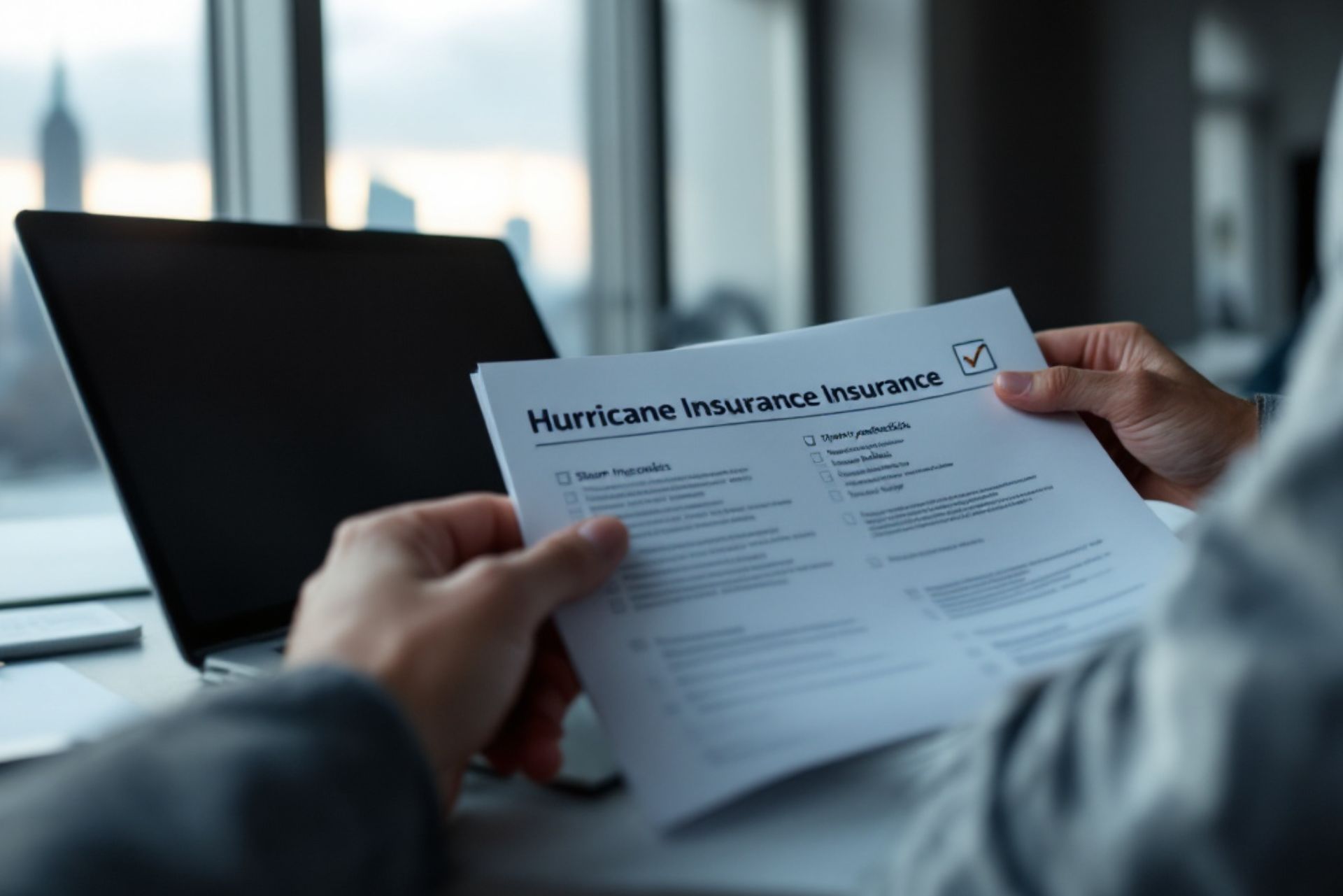New York Commercial Hurricane Insurance
See How We're Different:
or Call Us: 212-425-8150

Most Common Business Policies
Index
Understanding Commercial Hurricane Insurance
The Scope of Commercial Hurricane Insurance
The Cost of Commercial Hurricane Insurance in New York
How to File a Claim for Commercial Hurricane Insurance
Frequently Asked Questions about Commercial Hurricane Insurance
Conclusion: Protecting Your Business with Commercial Hurricane Insurance
Contact Us
In the face of increasing climate variability, businesses in New York are becoming more aware of the importance of commercial hurricane insurance. This article aims to provide a comprehensive guide to hurricane insurance for commercial entities, discussing its necessity, scope, costs, and practical steps to secure coverage and file claims.
Understanding Commercial Hurricane Insurance
What is Commercial Hurricane Insurance?
Commercial hurricane insurance is a specialized type of property insurance that protects businesses against the damages caused by hurricanes. Unlike standard property insurance, which may not cover wind or flood damage, this insurance specifically addresses the unique risks associated with tropical storms and hurricanes.
Typically, commercial hurricane insurance can cover structural damage, business interruption, and protection against the loss of inventory and assets due to wind, rain, and flooding. As such, it acts as a crucial financial safety net for companies operating in hurricane-prone areas, including many regions in New York. Additionally, many policies can be tailored to meet the specific needs of a business, taking into account factors such as the type of industry, the location of the premises, and the value of the assets at risk. This customization ensures that businesses receive the most relevant coverage for their unique circumstances.
Importance of Hurricane Insurance for Businesses
For many businesses, especially those located along coastal regions, the potential for hurricane-related damage is a significant risk factor. Hurricanes can lead to storm surges, flooding, and high winds, all of which can cause devastating damage.
Having hurricane insurance is not just a proactive measure; it’s often essential for business continuity. In the aftermath of a hurricane, businesses without adequate insurance may face enormous repair costs, leading to financial strain and possibly even bankruptcy. Furthermore, many lenders require businesses to have adequate insurance coverage before approving loans for repairs and rebuilding efforts. The implications of not having this coverage extend beyond immediate financial concerns; they can impact employee morale, customer trust, and the overall reputation of the business in the community. Companies that are prepared with the right insurance can not only recover more quickly but can also demonstrate resilience, which is vital in maintaining stakeholder confidence during challenging times.

The Scope of Commercial Hurricane Insurance
What Does Hurricane Insurance Cover?
Commercial hurricane insurance typically covers a range of damages, including:
- Physical damage to buildings and structures
- Damage to equipment and machinery
- Loss of inventory due to flooding or wind damage
- Business interruption loss if operations are halted due to hurricane damage
In addition, some policies may offer extra coverage options such as debris removal, temporary relocation expenses, and even coverage for additional living expenses if the business owner needs to evacuate during a major storm. This can be particularly beneficial for businesses that rely heavily on physical locations, such as retail stores and restaurants, where the impact of a hurricane can halt operations and lead to significant financial losses. Furthermore, some insurers may provide risk management services to help businesses prepare for storms, including risk assessments and emergency response planning, which can be invaluable in mitigating potential damages.
What is Not Covered by Hurricane Insurance?
While hurricane insurance provides extensive coverage, it is vital to understand what it does not cover. Common exclusions include:
- Wind damage to older structures that are inadequately maintained
- Flood damage (unless specifically included in the policy, as flood insurance usually needs to be purchased separately)
- Losses from power outages not directly caused by hurricane damage
Moreover, many policies may have specific deductibles or limits on certain types of damage, meaning that businesses must carefully read their policy to fully understand their coverage stance. It's also important to note that some businesses may face challenges in obtaining coverage due to their geographical location, especially if they are situated in high-risk areas prone to hurricanes. Insurers often assess risk based on historical data, and businesses in these zones may find themselves paying higher premiums or facing stricter policy terms. As a result, proactive measures such as fortifying structures, investing in flood barriers, or even relocating to safer areas can be crucial steps for business owners looking to safeguard their investments against the unpredictable nature of hurricanes.
The Cost of Commercial Hurricane Insurance in New York
Factors Influencing the Cost of Hurricane Insurance
The cost of commercial hurricane insurance can vary significantly based on numerous factors. Some of the primary considerations include:
- Location of the business: Areas more prone to hurricanes generally have higher premiums.
- Building type and age: Older buildings may be considered more at risk, thus increasing costs.
- Coverage amount: The more coverage a business seeks, the higher the premium will likely be.
- Deductibles: Higher deductibles can lower premiums, but they create more risk in the event of a claim.
Additionally, insurance companies will assess the business's past claim history. A pattern of frequent claims may raise premium costs. Furthermore, the type of business operations can also play a significant role in determining premiums. For instance, businesses that store hazardous materials or operate heavy machinery may face higher rates due to the increased risk associated with potential damage or liability during a hurricane. The overall economic climate and the insurance market's state can also influence costs, as insurers adjust their rates based on broader trends and risks they perceive in the market.
Ways to Reduce Your Hurricane Insurance Premium
Reducing the cost of hurricane insurance can be achieved through several strategies, including:
- Increasing deductibles: Opting for a higher deductible can significantly lower premiums.
- Improving property resilience: Investing in storm-resistant building materials and preventative measures can lower insurance costs.
- Bundling policies: Many insurers offer discounts for bundling multiple types of insurance.
- Conducting risk assessments: Regular evaluations can identify areas to mitigate risk, which can lead to lower premiums.
It is also beneficial to shop around and compare quotes from different insurers to find the best policy for your specific needs and budget. Additionally, businesses may want to consider joining local or regional disaster preparedness programs, which can sometimes lead to discounts on insurance premiums. These programs often provide resources and training that help businesses better prepare for hurricanes, demonstrating to insurers that they are proactive in risk management. Moreover, maintaining a good credit score can also positively impact insurance rates, as insurers often use credit history as a factor in determining premiums.
How to File a Claim for Commercial Hurricane Insurance
Steps to File a Hurricane Insurance Claim
Filing a claim after a hurricane can be a daunting task, but following a structured approach can ensure you cover all necessary steps:Document the damage:
- Take detailed photographs and videos of the impact on your property.
- Notify your insurer: Contact your insurance company as soon as possible to begin the claims process.
- Complete any necessary forms: Prepare any required documentation and forms that must be submitted with your claim.
- Keep records: Maintain a comprehensive record of all communications with your insurer.
Each step is crucial to ensuring your claim is processed efficiently and that you receive the compensation you deserve. Additionally, it’s wise to create a timeline of events, noting when the hurricane struck, when you first contacted your insurer, and any subsequent communications. This timeline can serve as a valuable reference point if disputes arise later in the process. Furthermore, consider reaching out to local business associations or chambers of commerce for support and resources, as they may offer guidance or even legal assistance for navigating the claims process.
Dealing with Insurance Adjusters
After filing a claim, an insurance adjuster will likely visit your property to assess the damages. Meeting with an adjuster can be intimidating, but consider these tips to ensure an effective meeting:
- Be prepared: Have all documentation organized and available for review.
- Be honest: Provide accurate information about damages and repairs.
- Ask questions: Don’t hesitate to seek clarification on the process and what is covered.
By being well-prepared and proactive, businesses can facilitate a smoother claims process and potentially expedite their recovery efforts. It may also be beneficial to have a contractor or restoration expert present during the adjuster's visit. Their expertise can help substantiate your claims regarding the extent of the damage and the necessary repairs. Additionally, understanding the specific terms of your policy, including deductibles and coverage limits, can empower you during discussions with the adjuster, ensuring you advocate effectively for your business's needs. Remember, the more informed and organized you are, the better equipped you will be to navigate the complexities of the claims process.

Frequently Asked Questions about Commercial Hurricane Insurance
Can I Buy Hurricane Insurance After a Storm Warning?
It is generally not possible to buy hurricane insurance or change your policy once a storm warning is issued. Insurance companies often impose a moratorium on new policies during hurricane threats. Thus, it’s crucial for businesses to secure coverage well in advance of the hurricane season. This proactive approach not only protects your business from unforeseen weather events but also allows you to negotiate better terms and premiums when you’re not under immediate threat. Additionally, understanding the specific coverage options available can help tailor a policy that meets the unique needs of your business.
Does My Business Really Need Hurricane Insurance?
Yes, whether your business is located near the coast or inland, having hurricane insurance is essential if you want to protect your assets against potential damage. Even minor hurricanes can cause significant disruption and financial loss, making this type of insurance a critical aspect of risk management for any commercial entity in New York. Beyond physical damage to your property, hurricanes can also lead to business interruption, where operations are halted due to damage or power outages. This can result in lost revenue and increased operational costs, making it vital to have coverage that includes business interruption insurance, which can help mitigate these losses and keep your business afloat during recovery.
Conclusion: Protecting Your Business with Commercial Hurricane Insurance
As hurricanes continue to pose a significant risk to businesses in New York, investing in commercial hurricane insurance is a wise decision. Understanding the coverage options, costs, and processes involved helps businesses be better prepared for natural disasters.
By taking proactive measures and securing adequate insurance, businesses can safeguard their assets, ensure operational continuity, and ultimately protect their financial health in times of crisis.
